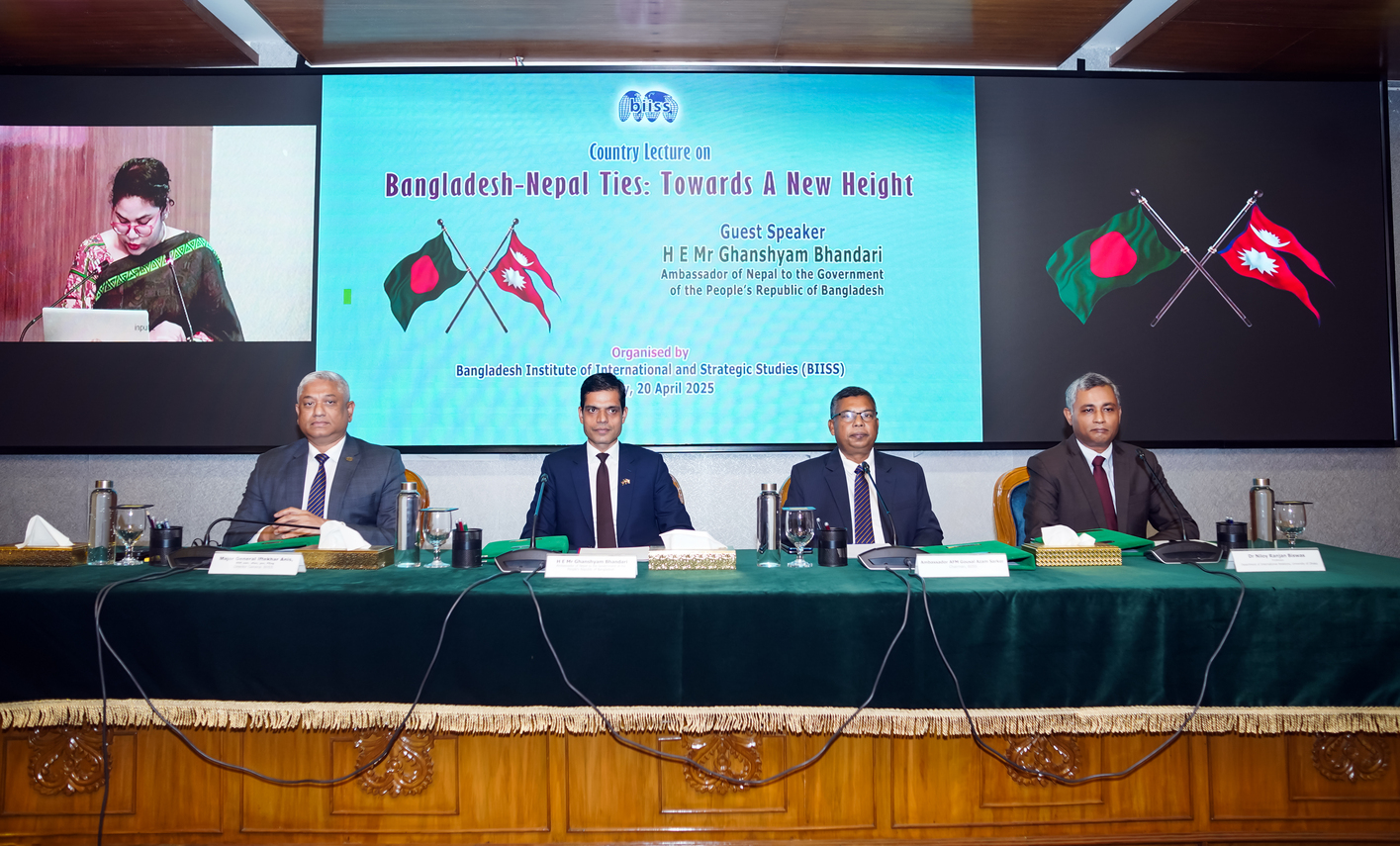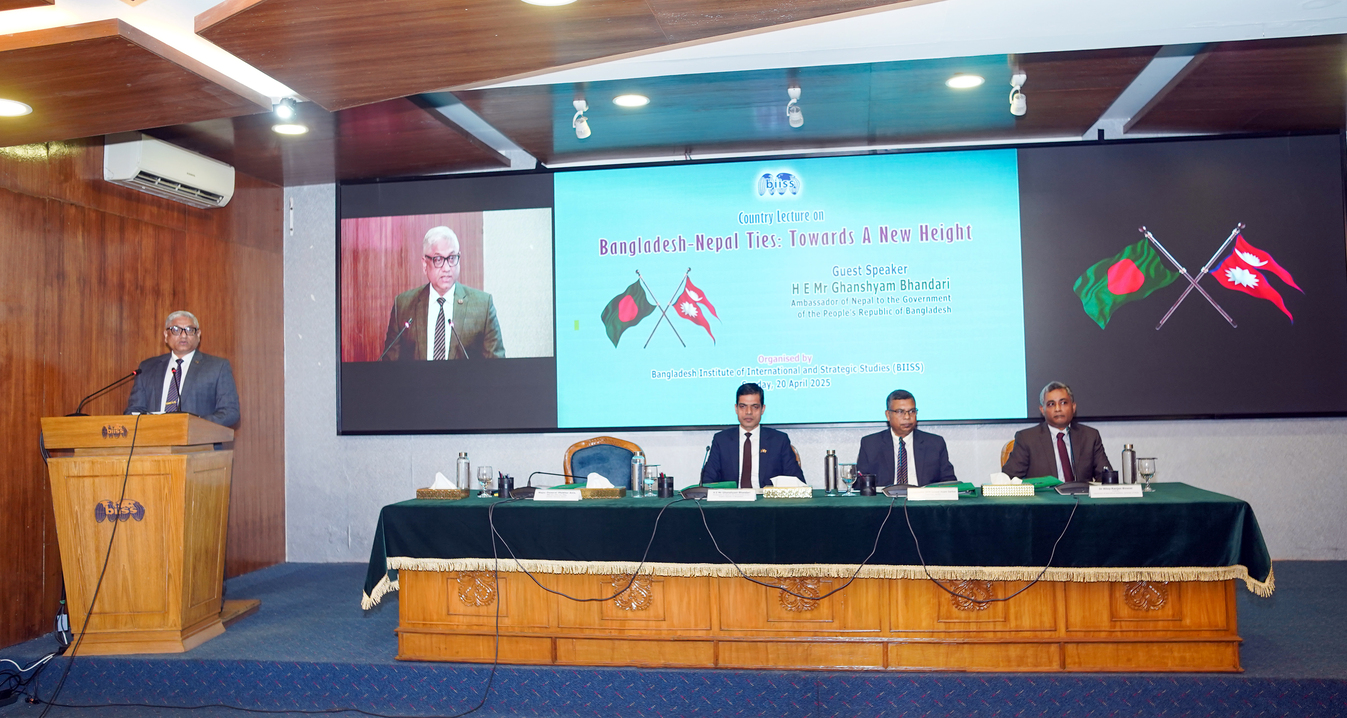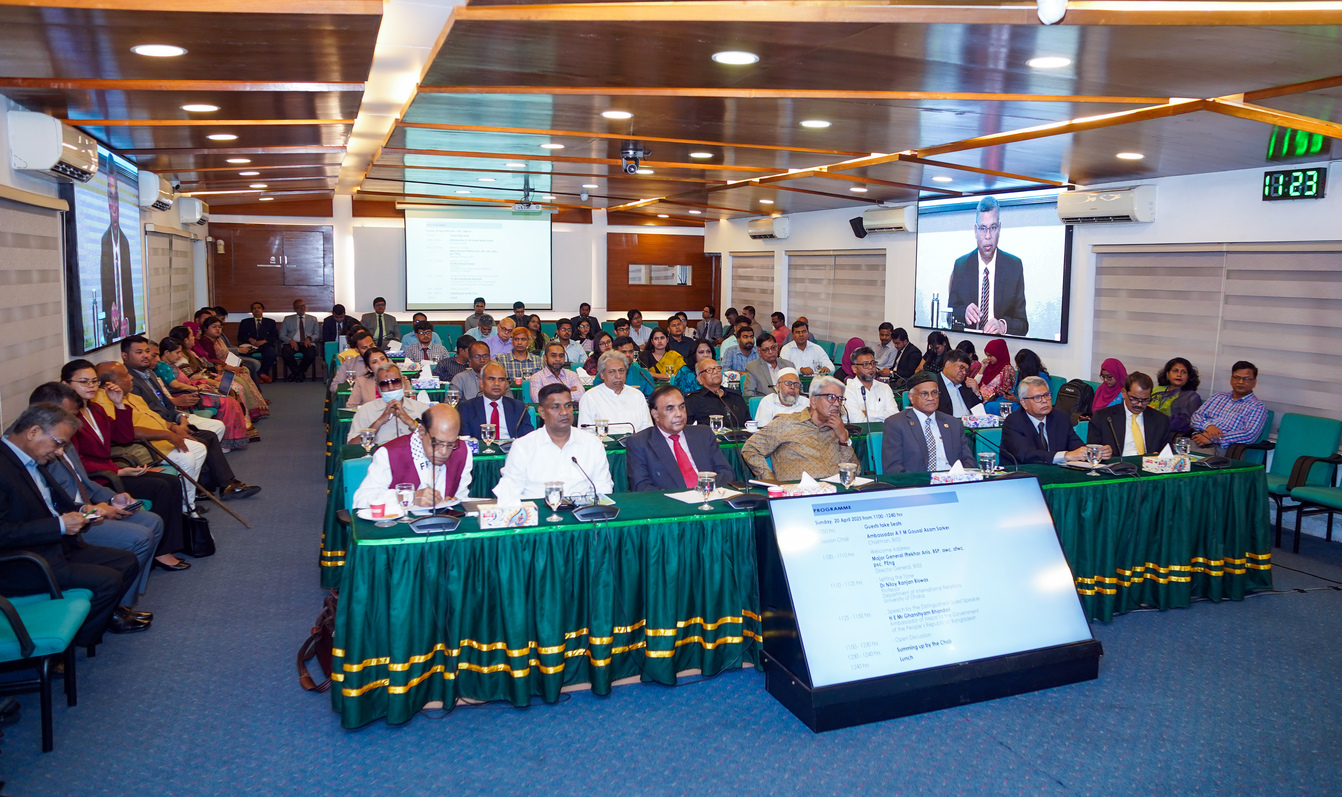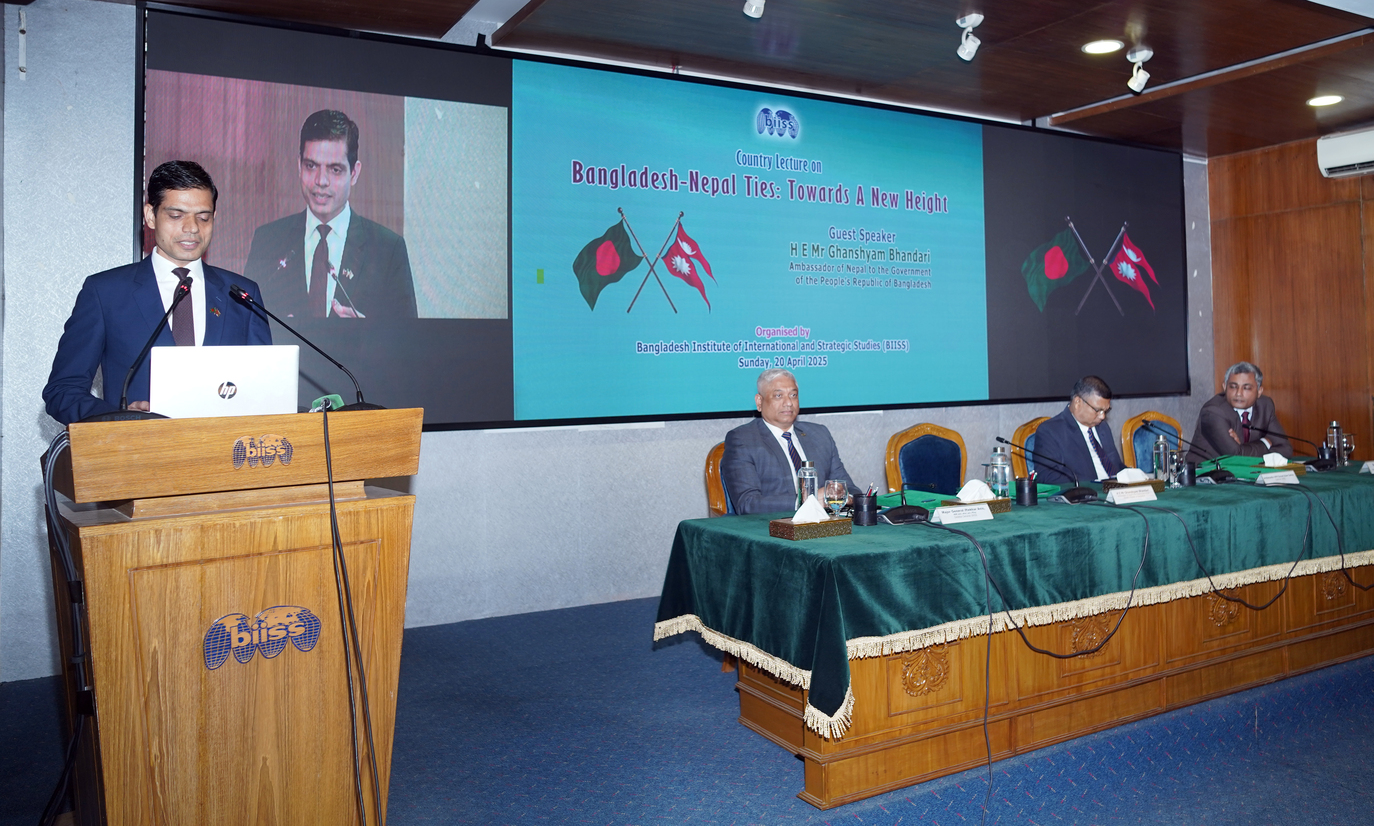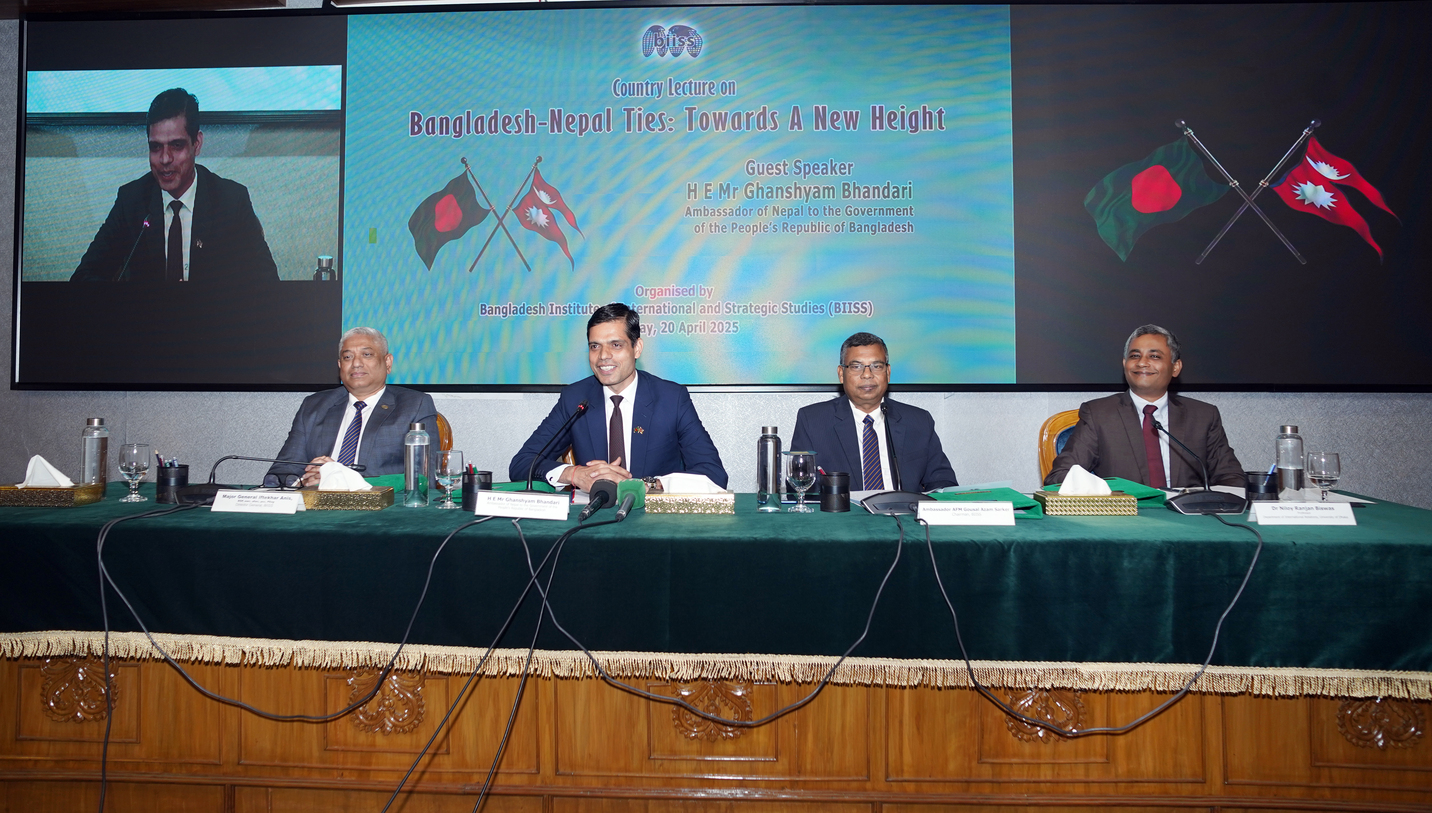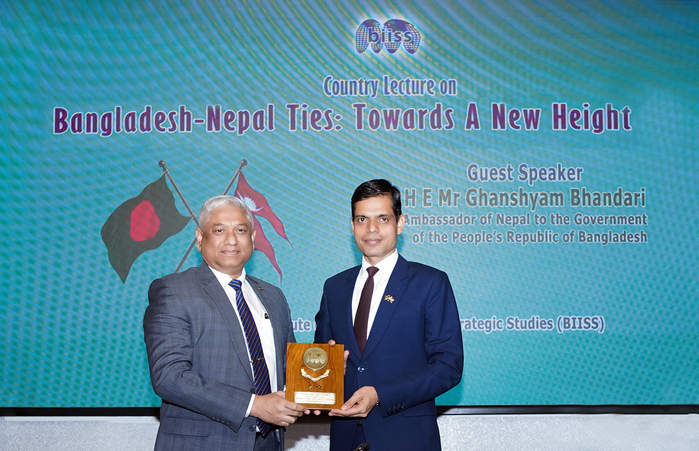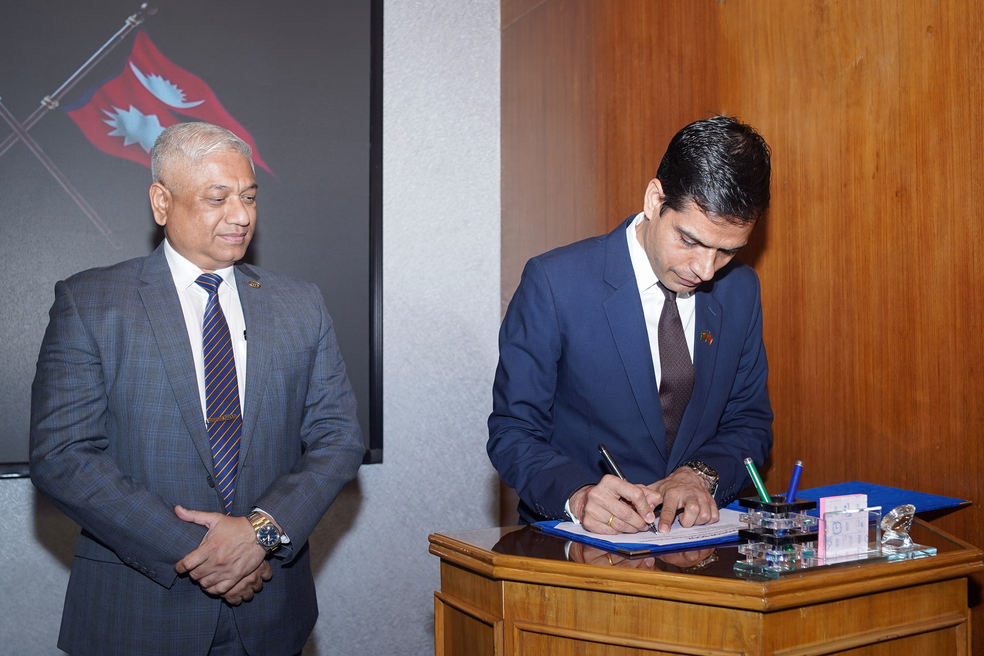Country Lecture Series (CLS) on Bangladesh-Nepal Ties: Towards a New Height
DATE: 2025-04-20
Bangladesh Institute of International and Strategic Studies (BIISS) organised a Country Lecture on “Bangladesh-Nepal Ties: Towards A New Height” on Sunday, 20 April 2025, at the BIISS auditorium. H E Mr Ghanshyam Bhandari, Ambassador of Nepal to the Government of the People’s Republic of Bangladesh, was the Distinguished Guest Speaker at the Country Lecture. Ambassador AFM Gousal Azam Sarker, Chairman, BIISS, Chaired the Session. Major General Iftekhar Anis, BSP, awc, afwc, psc, PEng, Director General, BIISS, delivered the welcome address. Dr Niloy Ranjan Biswas, Professor, Department of International Relations, University of Dhaka, set the tone of the Country Lecture.
Distinguished speaker of the country lecture noted that Bangladesh and Nepal, two South Asian countries nestled between the vast territories of India and China, share both geographical proximity and historical, cultural, and economic bonds. In recent years, the two countries have taken significant strides to deepen bilateral engagement, especially in trade, connectivity, energy cooperation, and people-to-people contact. This evolving partnership holds immense potential for mutual growth and regional integration. He also added that Nepal, being landlocked, can benefit from using Bangladeshi ports for international trade. In turn, Bangladesh can benefit from importing clean, renewable hydropower from Nepal to meet its rising energy demands. As physical connectivity remains a major challenge and opportunity in Bangladesh-Nepal relations, improved transport links—whether road, rail, or air—are crucial for enhancing trade and people-to-people contacts. Learned panellists expressed their firm belief that in the larger context of South Asian geopolitics, a strong Bangladesh-Nepal partnership can contribute significantly to regional stability and prosperity. As both countries strive to reduce overdependence on any single partner and diversify their foreign relations, their bilateral cooperation can serve as a model for pragmatic diplomacy rooted in mutual interest.
Senior officials from different ministries, diplomatic missions, media, researchers, academicians and students from various universities, representatives from different think tanks, international organisations, actively participated in the country lecture and enriched it by presenting their valuable opinions, comments, suggestions, and observations during the open discussion session.

